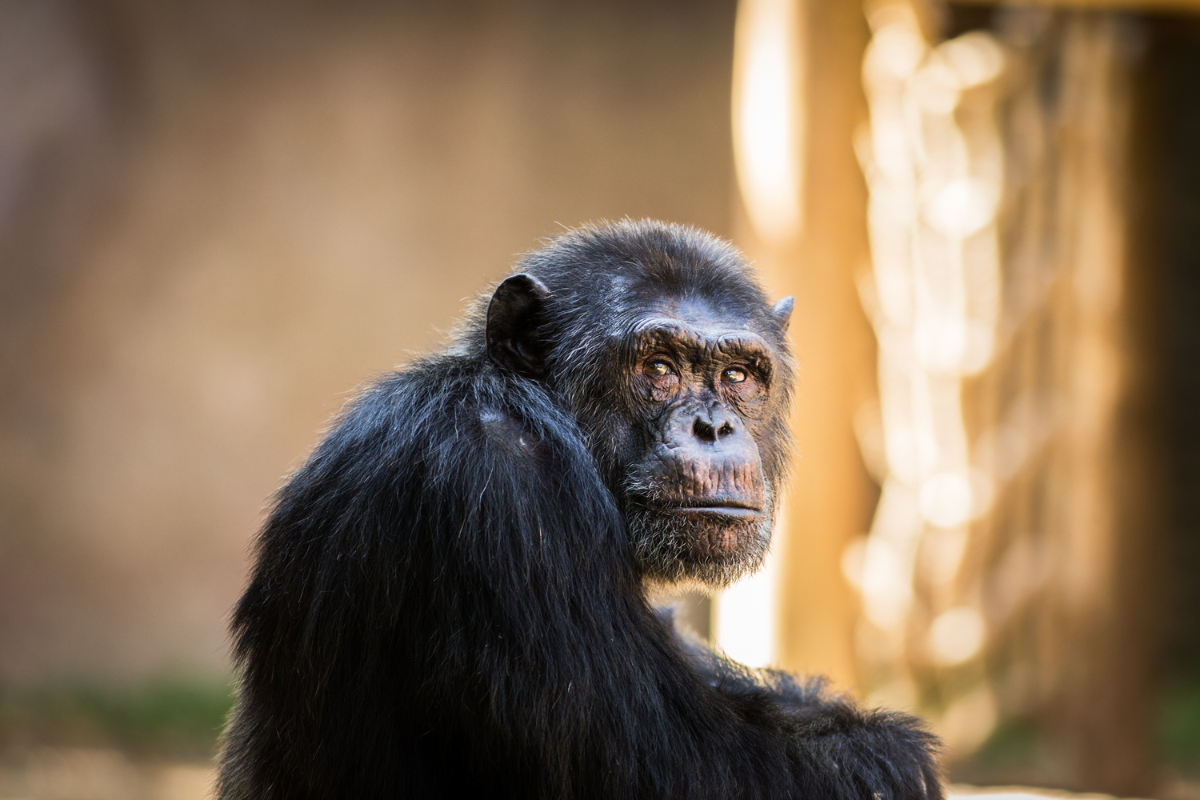U.S. Senator Richard Blumenthal hopes the new HBO docuseries called “Chimp Crazy” will help get the federal Captive Primate Safety Act across the finish line by the end of the year. The legislation would make it illegal to keep primates as pets in the U.S. and prohibit interstate commerce of primates.
“I first introduced the Captive Primate Safety Act in 2009 after the gruesome tragedy involving Charla Nash,” said Blumenthal from the portico of the Connecticut State Capitol Building Wednesday. He recalled Nash being attacked by a chimpanzee named Travis who was kept as a pet by her friend who lived in Blumenthal’s former hometown of Stamford.
“This tragedy should have spurred passage of the Captive Primate Safety Act. But nothing has happened in the last 15 years. Now our hope is the release of a new documentary, “Chimp Crazy”—the last episode airs Sept. 8—will give us the impetus to pass this measure before the end of the year,” Blumenthal said.
“Chimp Crazy,” helmed by “Tiger King” creator Eric Goode, has been dubbed a “disturbing documentary that argues against the ownership of primates.” It juxtaposes a woman, Tonia Haddix, obsessed with possessing chimps with the story of Travis the chimpanzee. Switching back to Tonia’s narrative is an intended slap in the face to the audience who just learned about the dangers of hoarding animals,” writes one critic.
“This Captive Primate Safety Act is meant to protect humans and primates. Primates are not meant to be pets or playthings,” Blumenthal said.
Blumenthal thanked Friends of Animals for championing the legislation and for providing lifelong care to primates at Primarily Primates Inc., the Texas sanctuary FoA has managed since 2007.
“We know all too well that primates—who are highly social and intelligent—belong in the wild and not exploited as pets,” said Nicole Rivard, government/media relations manager for Friends of Animals. “A staggering half of our approximately 200 primates at PPI—including lemurs, spider monkeys, capuchins and chimps—are former pets, who were often kept alone in small cages. Their lives were dismal.”
She explained that some arrive overweight with nervous habits, such as self-harm or feverishly pacing their enclosure.
“It’s amazing to see their transformation at the sanctuary, animals who could not move well or who never socialized—climbing, swinging, grooming each other and vocalizing their excitement when they see care staff,” Rivard said.
“Sen. Blumenthal has said getting this bill signed into law should be a passion for everyone, and Friends of Animals couldn’t agree more. If you don’t support this legislation, you support animal cruelty.”
While U.S. federal quarantine regulations forbid importing non-human primates as pets, there are no federal laws in the U.S. banning primate ownership or exotic animal ownership in general. Connecticut and 30 other states prohibit private possession of some or all primate species as pets. However, primates are easily obtained on the internet and through out-of-state dealers and auctions.

